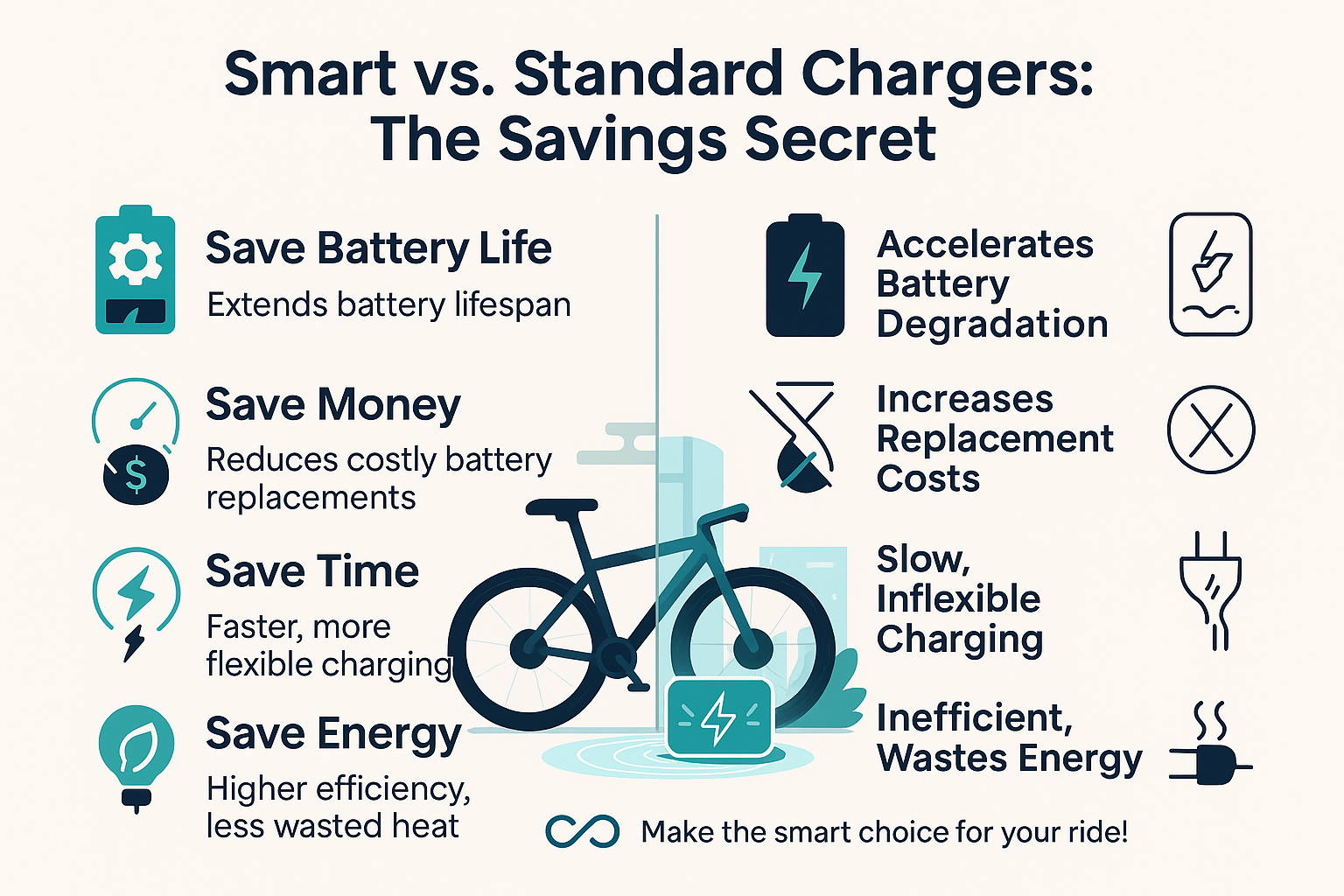Not all e-bike chargers are built the same. “Smart” or higher-efficiency units reduce waste, protect the battery, and save you time. This article breaks down where the savings come from, how they show up in real life, and how to choose a charger that pays for itself.
Where the savings come from
• Conversion efficiency: Better electronics waste less as heat, so more of what you pay for reaches the battery.
• Thermal management: Cool-running designs reduce stress on components and cells.
• Smarter finish: Instead of hammering to 100% and holding there, good chargers taper and/or sleep when full.
• Storage mode: One‑button target ~50–60% for long rests preserves capacity over time.
• Balancing & communication: Coordinating with the battery’s BMS promotes even cell voltages and consistent range.
The biggest money saver: battery lifespan
Battery replacements are expensive. Anything that reduces high‑state‑of‑charge exposure, avoids unnecessary heat, and supports balanced packs will delay degradation. Over a few seasons, that delay is often worth far more than the upfront difference between chargers.
Time is money
If your routine includes mid‑day or pre‑commute top‑ups, a higher‑current charger (within spec) helps you ride on your schedule. Look for units that negotiate or cap current safely and taper before full.
Safety and reliability
Quality chargers include protections for short‑circuit, over‑current, over‑voltage, and temperature. Look for UL/CE marks and robust cables/connectors. Reliability isn’t glamourous—until a failure ruins your ride or a melted plug ruins your afternoon.
How to choose
• Compatibility: correct voltage/connector for your system.
• Output current: match your needs, but respect the battery’s rated input.
• Features: storage mode, auto‑sleep, clear status LEDs or app visibility.
• Build: solid casing, strain‑relieved cables, reputable brand support.
• Portability: if you commute, a compact, cool-running design matters.
Bottom line
An efficient, smart charger won’t look flashy on Instagram, but it quietly reduces waste, extends pack life, and gives your time back. Over months of regular use, that combination is hard to beat.


Share:
The Real Cost to Charge an E-Bike
7 Daily Habits That Lower Your Charging Bill